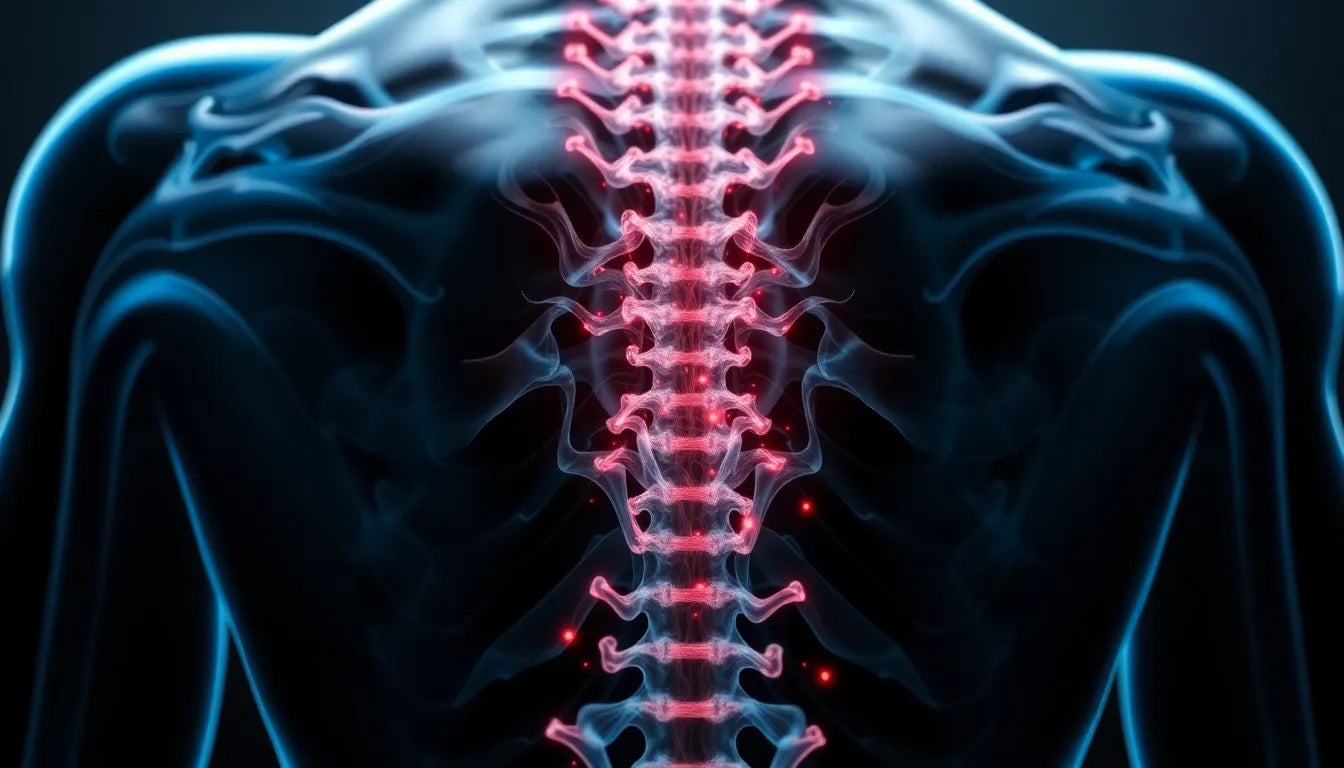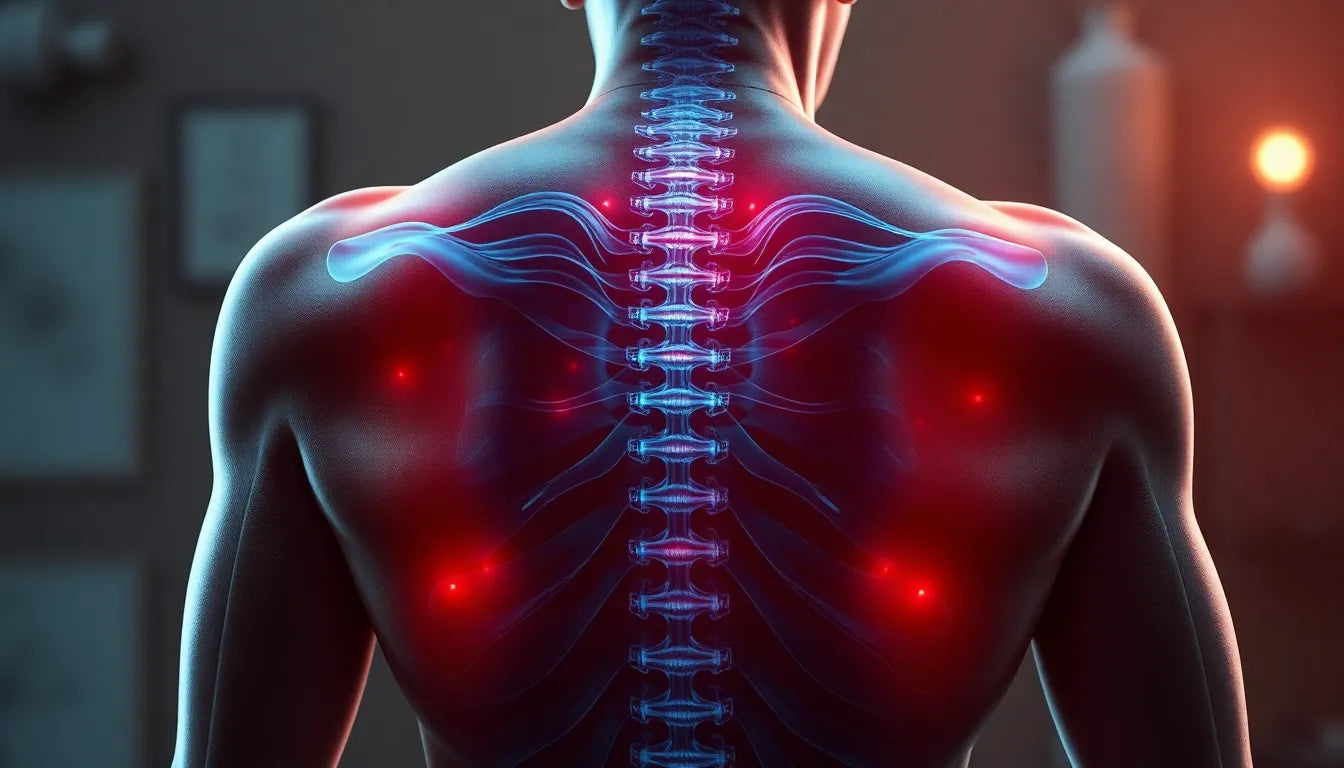Waking up with a sharp, nagging back pain can be an all-too-familiar scenario for those dealing with a herniated disc. As the morning sun peeks through the curtains, many find themselves grappling with discomfort that seems to peak right at dawn. This raises a pertinent question: why is herniated disc pain often worse in the morning?
understanding herniated disc pain
A herniated disc, often referred to as a slipped or ruptured disc, occurs when the soft, jelly-like center of a spinal disc pushes through a crack in the tougher exterior casing. This condition can irritate nearby nerves, leading to pain, numbness, or weakness in an arm or leg. While herniated discs can occur in any part of the spine, they are most common in the lower back. One of the most frustrating aspects for sufferers is the noticeable intensification of pain upon waking, which can significantly impact daily life and routines.
why does morning pain occur?
The phenomenon of morning pain is not just a cruel coincidence but rather a result of physiological processes that occur while we sleep. As we lie down and rest, our spinal discs naturally absorb fluid, increasing in size overnight. This rehydration process is essential for spinal health, but for those with a herniated disc, it can lead to increased pressure on the nerves and surrounding tissues. This swelling is why many people feel more pain and stiffness when they first get out of bed.
purpose of exploring morning pain
The aim of this post is to delve into the reasons behind this morning pain and provide insights into effective management strategies. Understanding the underlying causes can empower individuals to take proactive steps in managing their discomfort. From the role of fluid dynamics to practical morning routines, we will explore the factors contributing to this daily challenge and how to mitigate its impact.
fluid reabsorption and morning pain
One of the primary reasons herniated disc pain intensifies in the morning is due to the natural process of fluid reabsorption. During sleep, the spinal discs, which act as cushions between the vertebrae, absorb fluid and swell slightly. This increase in disc volume can place additional pressure on nearby nerves, particularly in those with a herniated disc. As a result, individuals often experience heightened pain upon waking, as the expanded discs press against sensitive neural structures.
the hydrodynamics of spinal discs
The center of each spinal disc, known as the nucleus pulposus, is jelly-like and plays a crucial role in maintaining disc hydration. Overnight, as the body rests, this jelly-like center absorbs more water, making the discs more hydrated and slightly larger come morning. This increased hydration results in greater pressure on the disc's outer layers and adjacent nerve roots, which are pain-sensitive. Consequently, individuals with a herniated disc may find that their pain and stiffness are most pronounced when they first rise.
morning vulnerability to injury
The morning hours pose a higher risk of injury for those with herniated discs due to the increased disc pressure and hydration levels. This heightened vulnerability means that the spine is more susceptible to strain and injury, especially during activities that involve forward bending or sudden movements. Therefore, it's crucial for individuals to exercise caution and avoid risky activities immediately after waking to prevent exacerbating their pain.
inflammation and its role in morning stiffness
Inflammation is another factor contributing to the morning pain experienced by those with herniated discs. During sleep, the lack of movement allows inflammatory fluids and chemicals to accumulate around the affected area, leading to increased stiffness and discomfort upon waking. This inflammatory response can intensify the sensation of pain, making it important for individuals to be mindful of their movements as they start their day.
comparing herniated disc pain with other conditions
While herniated disc pain is often worse in the morning, it's important to differentiate it from other conditions that also cause morning discomfort, such as ankylosing spondylitis and arthritis. These conditions involve different underlying mechanisms, primarily related to inflammation in joint spaces. Understanding these differences can help individuals identify the source of their pain and seek appropriate treatment.
| Condition | Morning Pain Mechanism | Symptoms |
|---|---|---|
| Herniated Disc | Increased disc volume and pressure on nerves | Pain, numbness, weakness |
| Ankylosing Spondylitis | Inflammation in joint spaces | Stiffness, pain in lower back |
| Arthritis | Joint inflammation | Joint pain, swelling, stiffness |
By understanding the specific causes of morning pain, individuals with herniated discs can better manage their symptoms and improve their quality of life.
Practical tips for a pain-free morning
Starting your day with a focus on gentle movements can significantly reduce the discomfort associated with a herniated disc. Begin by slowly rolling out of bed to avoid sudden pressure on your spine. Once you're upright, consider engaging in light stretching exercises. These can include gentle backbends and side stretches to help alleviate stiffness and promote flexibility. Additionally, incorporating a short walk into your morning routine can further aid in reducing pain by encouraging circulation and reducing inflammation.
The role of ergonomic aids
Using ergonomic aids can play a crucial role in managing morning pain. Lumbar supports, for instance, can help maintain proper spinal alignment while you sleep, reducing the risk of exacerbating a herniated disc. Specialized pillows designed to support the neck and lower back can also be beneficial. During the day, consider using ergonomic chairs and adjustable desks to minimize strain on your spine. These aids not only provide comfort but also help in maintaining a posture that reduces pressure on the affected areas.
Concluding thoughts
Understanding the reasons behind morning pain is essential for effective management of herniated disc discomfort. By recognizing the impact of fluid reabsorption and inflammation, individuals can take proactive steps to mitigate pain. Implementing lifestyle changes, such as incorporating ergonomic aids and adopting careful morning routines, can significantly improve quality of life. It is always advisable to consult healthcare providers to tailor these strategies to individual needs and ensure a comprehensive approach to managing pain.
Frequently asked questions
Why does my back hurt more in the morning?
Morning back pain is often due to the reabsorption of fluid into the spinal discs overnight. This increase in disc volume can place additional pressure on nerve structures, leading to heightened pain upon waking.
What can I do to prevent morning pain from a herniated disc?
To minimize morning pain, engage in gentle stretching exercises and make ergonomic adjustments in your sleeping environment. Using lumbar supports and specialized pillows can help maintain proper spine alignment.
How can I differentiate herniated disc pain from other conditions?
Herniated disc pain typically involves sharp pain, numbness, or weakness that radiates to the limbs. In contrast, conditions like arthritis often cause joint pain and stiffness. If uncertain, seek medical advice for an accurate diagnosis.
Is morning back pain a sign of a serious problem?
While morning back pain is common, persistent or severe pain may indicate a need for professional evaluation. Consulting with a healthcare provider can help determine if further treatment is necessary.
Sources
- Spine Ortho Center. "Why Are My Herniated Disc Symptoms Worse in the Morning?"
- Elite Sport & Spine WI. "Top 3 Reasons You Have Morning Back Pain & Stiffness."
- Transform Chiropractic. "Why Is My Bulging Disc Pain Getting Worse?"
- Better Health Channel. "Back pain – disc problems."
- CORE Orthopedics. "5 Unexpected Symptoms of a Herniated Disc."


















